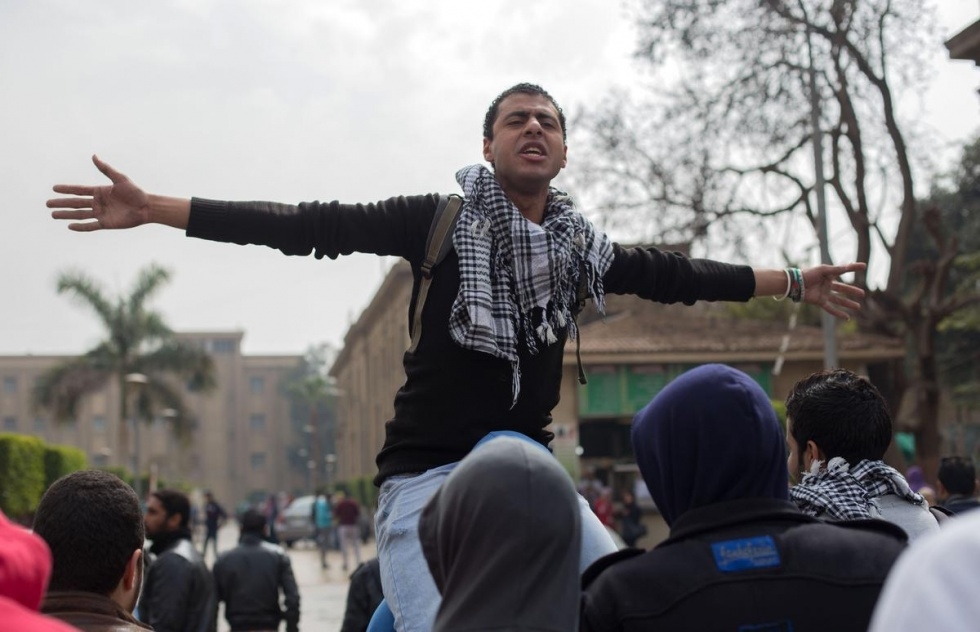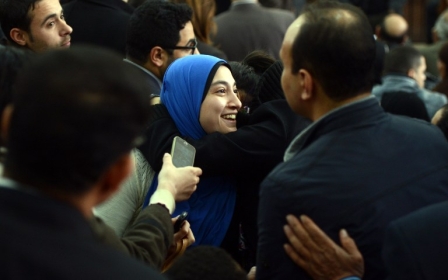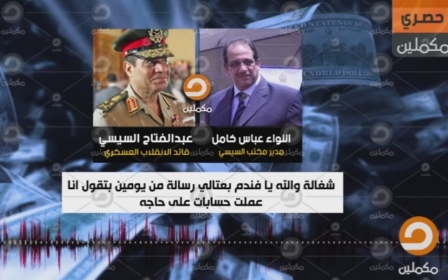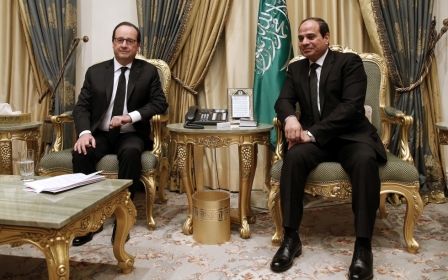Sisi officially approves Egypt’s anti-terrorist law

Egyptian President Abdel Fattah al-Sisi on Tuesday officially signed the controversial anti-terrorism act, giving his government even greater powers with which to crush dissent.
The law, which critics say gives blanket power to authorities to crush any form of dissent, has attracted heavy condemnation from Egyptian legal organisations and human rights bodies.
The law was initially drafted in 2014 and sent to interim president Adly Mansour to be approved back in April. Sisi won the presidential elections the following month, and in November, the cabinet ratified the law.
The final step in transforming the act into an official decree required the approval of the judicial advisory board, which approved it this year, before being signed by the president. Its ratification was all but seen as a foregone conclusion.
The authorities have long argued that the law is needed to fight terrorism and maintain public safety.
Since the overthrow of Egypt’s first democratically elected president Mohammed Morsi in July 2013, attacks in the restive Sinai Peninsula have been on the up with mass explosions often targeting military personnel and bases. Smaller blasts have also repeatedly rocked both Cairo and Egypt’s second city Alexandria
But critics insist that the law goes too far. Speaking in the wake of issuing the first draft, Amnesty International’s Middle East and North Africa deputy director Hassiba Hadi Sahraoui said: “This draft legislation also violates the right to free expression, undermines safeguards against torture and arbitrary detention, and expands the scope of application of the death penalty.”
The ambiguous language surrounding the definition of terrorism has been pointed out as a deliberate attempt to widen the scope of what constitutes a terrorist activity, by conflating normal criminal acts with intentions to intimidate the public – something which can be deemed a terrorist act under the new legislation.
The law stipulates that terrorist entities can be “any association, organisation, group, or gang that attempts to, aims to, or calls for destabilising public order; endangers the wellbeing or safety of society; harms individuals or terrorises them, or endangers their lives or freedoms or rights or safety.”
It goes on to say that anyone trying to “endanger social unity; harm the environment or natural resources or monuments or communications or transportation or funds or buildings or public or private property, or occupies them,” can also be deemed a terrorist.
The obstruction of public, government or juridical work or offices is likewise banned, as is the blocking of public transport, clauses that are likely to further curtail Egypt’s already limited right to protest.
Such a sweeping definition “potentially criminalises strikes and peaceful demonstrations in schools, universities and those emanating from mosques, under the pretext that such legitimate activities harm national unity, hamper the work of national institutions and damage the economy,” Sahraoui warned.
The law specifies that any group designated as terrorist would be dissolved, in addition to freezing the assets of the designated group, its associates and sponsors.
Mohamed Zaree, the programme manager at the Cairo Institute for Human Rights Studies (CIHRS) told news website Mada Masr that the law is merely a cover-up for cracking down on terrorism, and aims to uphold the status quo at the expense of even peaceful dissent from civil society groups.
“It is clear that the principal aim of this bill in its current form is not to counter terrorism, but rather to restrict such groups, movements and organisations from existing,” he said. “This provision could easily be interpreted to punish individuals or organisations which call for constitutional or legal reforms, even if done peacefully.”
Since Sisi officially took office, Egypt has seen a round of crackdowns that have seen thousands of political opponents imprisoned.
The Muslim Brotherhood group, from which Morsi hails, was designated as a terrorist organisation and outlawed in December 2013. Hundreds of its members were sentenced to death or condemned to lengthy prison spells despite the group officially renouncing violence. Scores of liberal activists and bloggers have also been given harsh sentences.
Egypt has 42 prison facilities for its civilian detainees. At the beginning of 2013, the total number of prisoners was estimated to be between 60,000-66,000.
The prison population massively swelled following Morsi’s overthrow, with the Interior Ministry saying that 16,000 people were arrested in the first nine months following Morsi’s ousting. However, some human rights groups have put the figure even higher, with the Egyptian Centre for Economic and Social Rights estimating that some 41,000 were now in jail.
Middle East Eye propose une couverture et une analyse indépendantes et incomparables du Moyen-Orient, de l’Afrique du Nord et d’autres régions du monde. Pour en savoir plus sur la reprise de ce contenu et les frais qui s’appliquent, veuillez remplir ce formulaire [en anglais]. Pour en savoir plus sur MEE, cliquez ici [en anglais].




